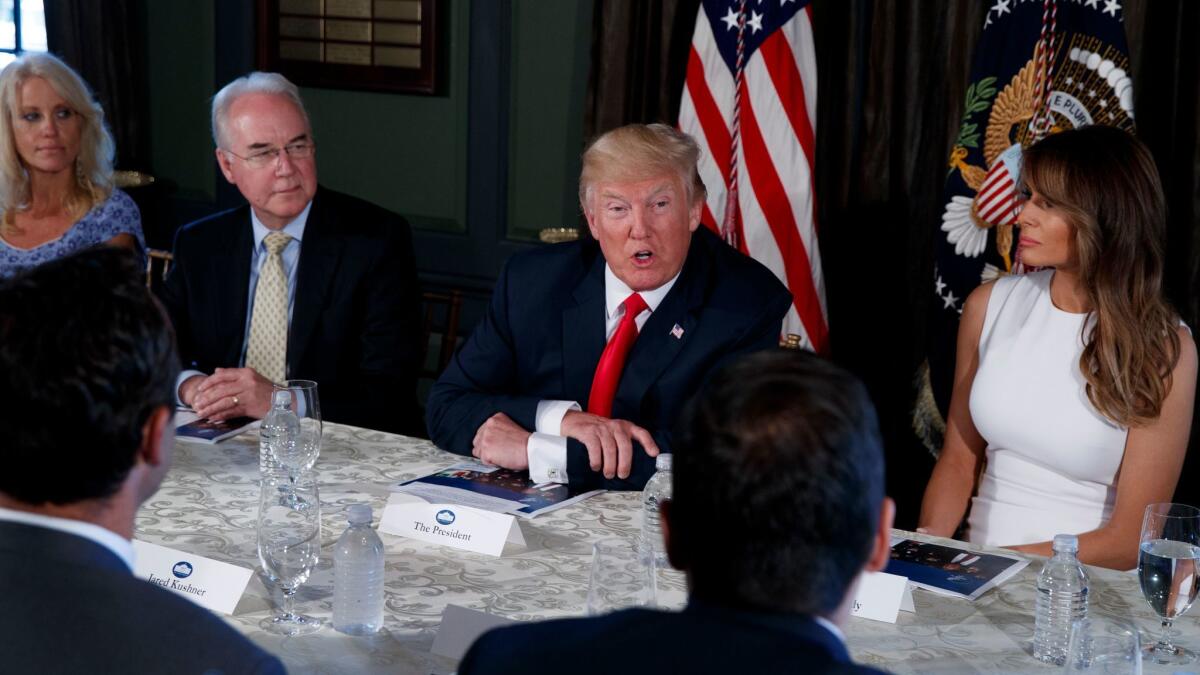Trump’s threatened move on healthcare would increase premiums and federal deficit, budget office says

- Share via
If the Trump administration makes good on a threat to cut off some subsidies for low- and medium-income buyers of health insurance, premiums would sharply rise and the federal deficit would balloon, the Congressional Budget Office said Tuesday.
At issue are so-called cost-sharing reductions -- payments the government currently makes to insurers to reimburse them for lowering deductibles and co-payments for some people who buy insurance on the Obamacare exchanges.
President Trump and his top aides, including Health and Human Service Secretary Tom Price, have refused to commit to continuing the payments, despite entreaties by many congressional Republicans who say that failing to make them would destabilize insurance markets. Democrats and some Republicans worry that Trump may order the payments cut off as part of a strategy to cause the law to collapse.
The Affordable Care Act requires insurers to reduce deductibles and co-payments for people whose income is below certain thresholds. The government makes the cost-sharing payments to insurers cover the cost they incur by doing that.
If the government stopped making the payments, insurers would respond by raising premiums by about 20%-25% over the next couple of years, the budget office projects.
Most consumers would not pay those higher premiums because the law also provides subsidies to help people pay the cost of insurance. Instead, the government’s cost for paying the subsidies would soar, the budget office says,
The net result would be to increase the federal deficit by about $20 billion per year over the next 10 years, the budget office said.
Essential Washington: Full coverage of the Trump administration »
More to Read
Get the L.A. Times Politics newsletter
Deeply reported insights into legislation, politics and policy from Sacramento, Washington and beyond. In your inbox twice per week.
You may occasionally receive promotional content from the Los Angeles Times.











